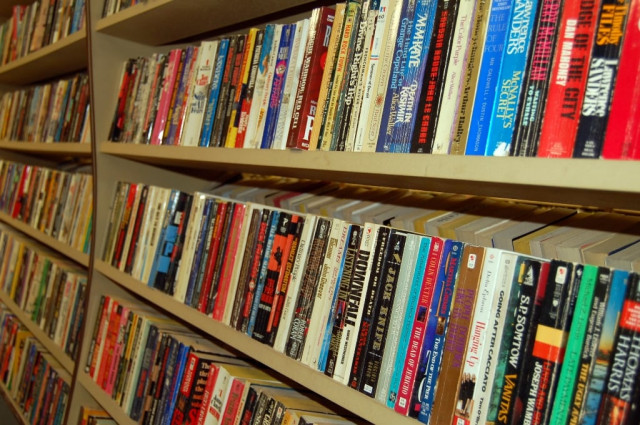Literary works: New library to be added to city railway station
Pakistan Railways has set up facility to preserve books on history, engineering.

Pakistan Railways has set up facility to preserve books on history, engineering. PHOTO: FILE
The development work on the library is currently under way and it is scheduled to be inaugurated by the end of this month.
Around 1,400 books, most of them related to the railways, have been provided to the library — the library has reference books published as early as the 1900s. “The oldest book we have is a traffic manual, which was published in 1898,” claimed Pakistan Railways divisional superintendent for Karachi, Maqsood Unnabi.

Over 50 years ago, the railway department had its library in Karachi but it disappeared. The same facility is now being established again. “I have been associated with Pakistan Railways for 30 years and I have not seen a library over here,” admitted Unnabi. “But from some of our reference manuals and books, I could see that there was a library here some 50 years back.”
The Pakistan Railways divisional commercial officer, Muhammad Shoaib Adil, told The Express Tribune that the library will also carry books on religion, fictional works and general history. “It will benefit not only railway employees but also university students and researchers,” he said, adding that the facility and its records will be available for all.
Unnabi added that the department has not spent a lot of money at the library. “We had furniture, free space and the books already. Some companies also donated their books to us.” According to him, the new railways employees avoid reading books and most of them are not familiar with the railways’ rules and regulation. “When we checked, we found out that they are not reading the books and they have no facility to read them either,” he said, adding that this is how they decided to set up the library.
Railway officers will have to spend an hour every day at the library, he pointed out. The library will be digitalised and all the books will be available at the Pakistan Railways website with free access for everyone, said Unnabi.
Published in The Express Tribune, January 22nd, 2014.



















COMMENTS
Comments are moderated and generally will be posted if they are on-topic and not abusive.
For more information, please see our Comments FAQ